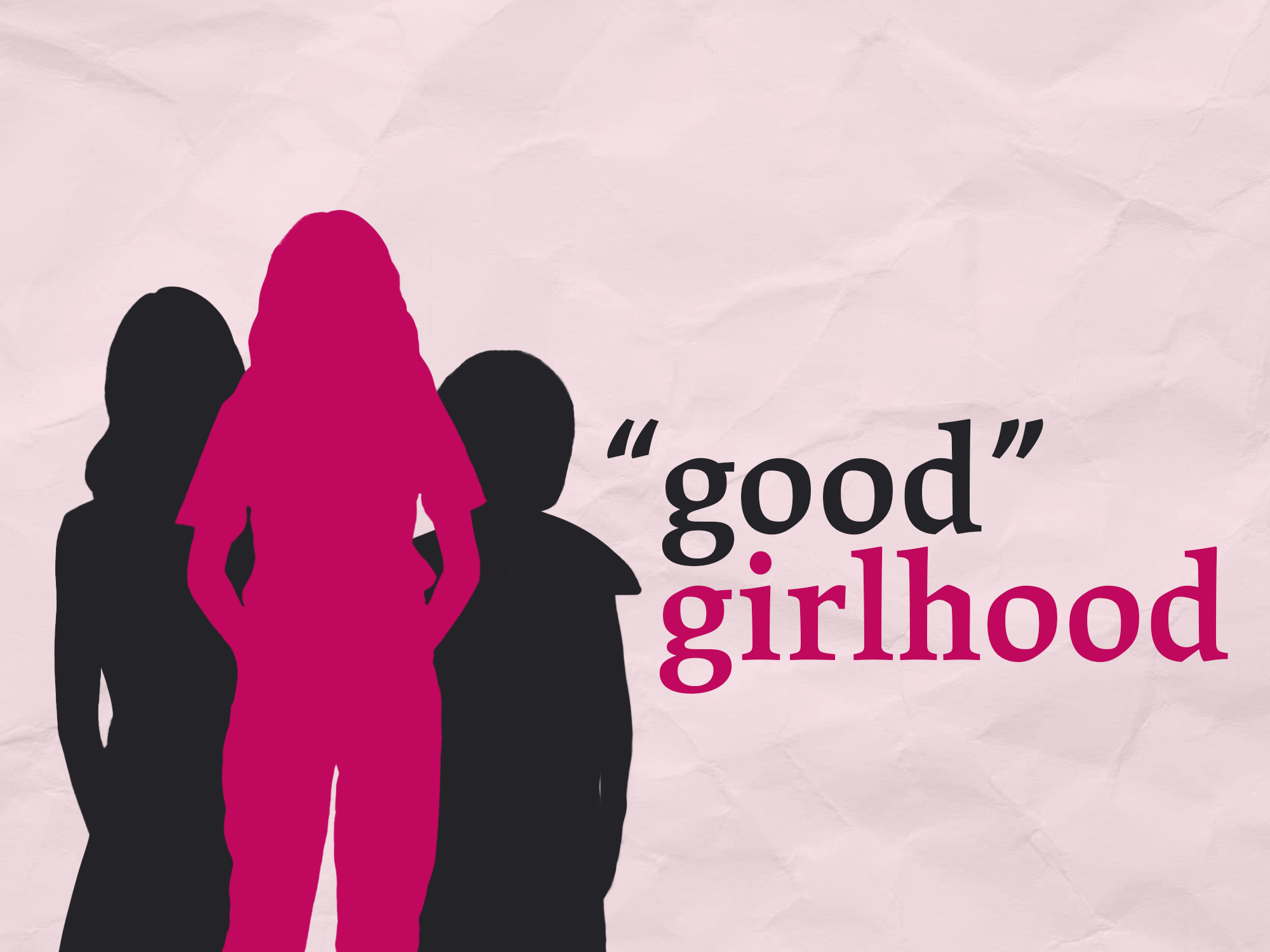It’s a shame that there are relatively few shows where the protagonist is a doctoral student. Maybe the monotony of graduate school does not lend itself to episodic storytelling unless the main character is forced beyond her comfort zone.
Perhaps this is why “We Are Lady Parts” (2021) is so engrossing. Written, created and directed by Nida Manzoor, the six-episode British series follows 26-year-old Amina Hussein (Anjana Vasan) as she finishes her Ph.D. in microbiology and joins an all-female Muslim punk band. A feminist comedy, the show follows the band members and their manager as they navigate adulthood, nurture their creative lives and traverse the liminal space between secular and Muslim culture.
In the first episode, Amina interviews a potential suitor. Her desire to become a Mrs. stems from the fact that her friends, including her best friend Noor (Aiysha Hart), are all affianced. Her mother (Shobu Kapoor) wants her to date casually, but “keep it halal, habibti.” Noor advises Amina to downplay the fact that she spends her free time teaching underprivileged youth to play guitar, to find a “witty, kind-hearted, medium-to-devout Muslim man.”
Amina insists she is not a performer because of severe stage fright and sublimates her desire to rock through solo performances in her room. She joins Lady Parts to be courted by a gentleman caller. This leads to the foursome’s first collaboration — “Bashir With the Good Beard,” a rant against unattainable beauty standards and the attention of fickle men.
Lady Parts’ music is about representation and being heard. They are girls who play and pray together. The soundtrack features original tunes such as “Ain’t No One Gonna Honor Kill My Sister But Me,” a mockery of toxic masculinity, along with songs from bands such as System of a Down, Radiohead, The Proclaimers and The Shins. Lady Parts’ music is deeply influenced by the Riot Grrrl movement, a pivotal part of third-wave feminism in which female punk bands used their songs to decry the sexist status quo.
The show humorously captures the complexity of living a creative life in contemporary times. Consider the occupations of the various band members — Saira (Sarah Kameela Impey) works at a halal butcher shop, Ayesha (Juliette Motamed) drives for Uber, Momtaz (Lucie Shorthouse) sells high-priced skimpy lingerie and Bisma (Faith Omole), an independent artist, creates a dystopian comic about a group of young women becoming homicidal on their periods. These jobs reflect increasing workforce casualization, but the flexibility allows the girls to devote time to practice.
Amina becomes a rock star in the evenings, yet spends her days hiding her musical endeavors from her friends and family. However, her battle with performance anxiety continues throughout the series.
Stage fright is an extended metaphor for the uncertainty of emerging adulthood, a time that can be particularly challenging for ethnic minorities who must navigate their coming-of-age in the dominant culture. The show describes itself as irreverent, yet it takes great care to illustrate the complexity of Muslim womanhood.
Saira, for example, is a Marxist feminist who desires a non-normative life, and her learned cynicism makes her the perfect foil to Amina’s naive mirth. She sucks the air out of a room with calm assertions such as “marriage is a tool of the patriarchy.” Saira may exasperate her posse, but she is no straw feminist whose beliefs are depicted as outlandish or comedic.
It has become socially acceptable to claim the feminist label with no accompanying praxis, and Saira’s iconoclasm is inspiring. She dons a beanie as a head covering to pray, and her faith turns her into an inferno on stage when facing a crowd of unimpressed middle-aged white male spectators.
In the best episode of the season, Lady Parts is interviewed by a digital magazine. As they are pressed to comment on identity and whether their music subverts “traditional Muslim values,” the women must grapple with being forced to testify to a false narrative about how religion is oppressive.
The storyline appears to be inspired by the backlash to the show’s original pilot, which aired in 2018. Viewers decried the portrayal of Muslim women as offensive. Forcing the characters to weather a similar social media maelstrom is a subtle rebuke to viewers’ appeals for positive depictions of underrepresented groups. Representation matters, but it shouldn’t come at the expense of multifaceted and nuanced storytelling.
The wait for another installment of “We Are Lady Parts” is long, but Manzoor has not rested on her laurels. Earlier this year, she released her feature film debut, “Polite Society,” another excellent comedy that centers on British Pakistani sisters. No matter which medium Manzoor tackles, her work singularly places brown girls at the center of the action.
Editor’s Note: This article is a review and includes subjective thoughts, opinions and critiques.
